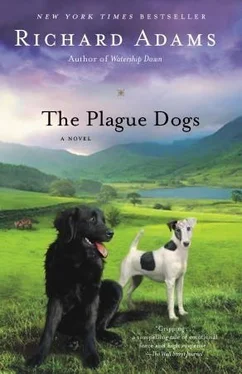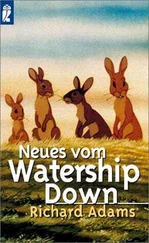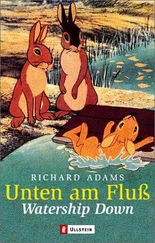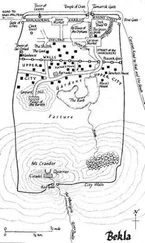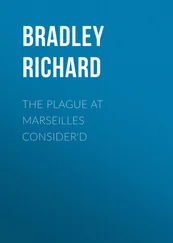Richard Adams - The Plague Dogs
Здесь есть возможность читать онлайн «Richard Adams - The Plague Dogs» весь текст электронной книги совершенно бесплатно (целиком полную версию без сокращений). В некоторых случаях можно слушать аудио, скачать через торрент в формате fb2 и присутствует краткое содержание. Город: New York, Год выпуска: 2007, ISBN: 2007, Издательство: Ballantine Books, Жанр: Природа и животные, Фэнтези, на английском языке. Описание произведения, (предисловие) а так же отзывы посетителей доступны на портале библиотеки ЛибКат.
- Название:The Plague Dogs
- Автор:
- Издательство:Ballantine Books
- Жанр:
- Год:2007
- Город:New York
- ISBN:978-0-345-49402-3
- Рейтинг книги:3 / 5. Голосов: 1
-
Избранное:Добавить в избранное
- Отзывы:
-
Ваша оценка:
- 60
- 1
- 2
- 3
- 4
- 5
The Plague Dogs: краткое содержание, описание и аннотация
Предлагаем к чтению аннотацию, описание, краткое содержание или предисловие (зависит от того, что написал сам автор книги «The Plague Dogs»). Если вы не нашли необходимую информацию о книге — напишите в комментариях, мы постараемся отыскать её.
, Richard Adams creates a lyrical and engrossing tale, a remarkable journey into the hearts and minds of two canine heroes, Snitter and Rowf, fugitives from the horrors of an animal research center who escape into the isolation—and terror—of the wilderness.
The Plague Dogs — читать онлайн бесплатно полную книгу (весь текст) целиком
Ниже представлен текст книги, разбитый по страницам. Система сохранения места последней прочитанной страницы, позволяет с удобством читать онлайн бесплатно книгу «The Plague Dogs», без необходимости каждый раз заново искать на чём Вы остановились. Поставьте закладку, и сможете в любой момент перейти на страницу, на которой закончили чтение.
Интервал:
Закладка:
In effect, nearly all the pleasant people in the book are real, while all the unpleasant people are not. For example, Dr. Boycott, Digby Driver, Ann Moss and the Under Secretary are fictitious and bear no resemblance to anyone known to me. But Dennis Williamson, Robert Lindsay, Jack and Mary Longmire, Phyllis and Vera Dawson and several other inhabitants of Seathwaite and the surrounding neighbourhood are as real as Scafell Pike, though fortunately neither Dennis nor Robert has ever had to contend in reality with the activities of Rowf, nor has Phyllis Dawson ever found him in her yard at dawn.
The story is in one respect idealized. Things change. Jack and Mary Longmire are no longer to be found at the Newfield. Tough old Bill Routledge of Long House is dead (a loss to the valley which recalled vividly Milton’s lines on Hobson, the university carrier,
’Twas such a shifter, that if truth were known,
Death was half glad when he had got him down).
Gerald Gray has been gone some time now from Broughton, though the “Manor” is still there; and Roy Greenwood has moved on from the parsonage at Ulpha. John Awdry was, indeed, a brave parachutist, but long ago, in the Second World War. There never was, in fact, a time when all these people were to be found doing their thing simultaneously. I have simply included them in the story as they are best remembered.
There is no such place in the Lake District as Animal Research (Scientific and Experimental). In reality, no single testing or experimental station would cover so wide a range of work as Animal Research. However, every “experiment” described is one which has actually been carried out on animals somewhere. In this connection I acknowledge in particular my debt to two books: Victims of Science by Richard Ryder, and Animal Liberation by Peter Singer.
With the tod’s Upper Tyneside dialect, I received invaluable help from Mr. and Mrs. Scott Dobson.
The diagrams were drawn by Mr. A. Wainwright, already well known for his fine series of pictorial guides to the Lakeland Fells. I seriously doubt whether an author can ever have received more generous help and co-operation from an illustrator.
Sir Peter Scott and Ronald Lockley are, of course, very real indeed. I am most grateful for their good sportsmanship in allowing themselves to appear in the story. The views attributed to them have their entire approval.
Finally, my thanks are due to Mrs. Margaret Apps and Mrs. Janice Kneale, whose conscientious and painstaking work in typing the manuscript was of the highest standard.
FIT 1
Friday the 15th October
The water in the metal tank slopped sideways and a treacly ripple ran along the edge, reached the corner and died away. Under the electric lights the broken surface was faceted as a cracked mirror, a watery harlequin’s coat of tilting planes and lozenges in movement, one moment dull as stone and the next glittering like scalpels. Here and there, where during the past two hours the water had been fouled, gilded streaks of urine and floating, spawn-like bubbles of saliva rocked more turgidly, in a way suggestive—if anyone present had been receptive to such suggestion—of an illusion that this was not water, but perhaps some thicker fluid, such as those concoctions of jam and stale beer which are hung up in glass jars to drown wasps, or the dark puddles splashed through by hooves and gum-boots on the concrete floors of Lakeland cattle sheds.
Mr. Powell, his note-pad ready in hand, leant across the flanged and overhanging edge of the tank, wiped his glasses on his sleeve and looked down the two or three feet to the contents below.
“I think it’s packing in, chief,” he said. “Oh, no, wait a jiffy.” He paused, drew back the cuff of his white coat to avoid another, though weak, splash and then bent over the water once more. “No, I was right first time—it is going. D’you want it out now?”
“When it definitely sinks and stops moving,” answered Dr. Boycott, without looking up from the papers on the table. Although there was in the room no draught or air movement whatever, he had placed the two graphs and the log sheet on top of one another and was using the heavy stop-watch as a paperweight to ensure that they remained where he intended them to remain. “I thought I’d made it clear the other day,” he added, in a level, polite tone, “what the precise moment of removal should be.”
“But you don’t want it to drown, do you?” asked Mr. Powell, a shade of anxiety creeping into his voice. “If it—”
“No!” interjected Dr. Boycott quickly, as though to check him before he could say more. “It’s nothing to do with want,” he went on after a moment. “It’s not intended to drown—not this time anyway; and I think probably not the next time either—depending on results, of course.”
There were further sounds of splashing from inside the tank, but faint, like metallic echoes, rather as though a ghost were trying, but failing, to come down and trouble the waters (and indeed, as far as the occupant was concerned, any sort of miracle, being unscientific, was entirely out of the question). Then a choking, bubbling sound was followed by silence, in which the rasping call of a carrion crow came clearly from the fell outside.
Mr. Powell stood up, walked across the concrete floor and took down a shepherd’s crook which was hanging on a peg. Sitting down once more on the edge of the tank, he began unthinkingly to tap with the butt of the crook the rhythm of a current popular song.
“Er—please, Stephen,” said Dr. Boycott, with a faint smile.
“Oh, sorry.”
The large mongrel dog in the tank was continuing to struggle with its front paws, but so feebly now that its body, from neck to rump, hung almost vertically in the water. The spaniel-like ears were outspread, floating on either side of the head like wings, but the eyes were submerged and only the black, delicately lyrated nose broke the surface. As Mr. Powell watched, this too went under, rose again for an instant and then sank. The body, foreshortened by refraction as it descended, seemed to move sideways from its former floating position, finally appearing on the bottom of the tank as an almost flattened mass and disturbing round its sides, as it settled, little clouds of dirty silt. Dr. Boycott clicked the stop-watch. Mr. Powell, looking quickly back to see whether he had noticed the silt (for his chief was particular about the cleanliness of equipment), made a mental note to insist to Tyson, the caretaker and head-keeper, that the tank should be emptied and cleaned tomorrow. Then, allowing for the refraction with the skill of a certain amount of practice, he plunged in the crook, engaged the dog’s collar and began to drag it to the surface. After a moment, however, he faltered, dropped the crook and stood up, wincing, while the body subsided once more to the floor of the tank.
“Christ, it’s heavy,” he said. “Oh, no, chief, I don’t mean it’s any heavier than usual, of course, only I pulled a muscle in my wrist last night and it’s been giving me a spot of gyppo. Never mind, never say die, here goes.”
“I’m sorry,” said Dr. Boycott. “Let me help you. I wouldn’t want you to suffer avoidably.”
Together they pulled on the crook, raised the heavy, pelt-sodden body head-first, broke the surface tension with a concerted heave and laid the inert dog on a foam-rubber mattress beside the tank. Here it resembled an enormous, drowned fly—very black, with a compressed shape something like that of a raindrop; and smaller than life, on account of a kind of collapse of the limbs and other excrescences into the central mass of the trunk. Mr. Powell began resuscitation; and after a little the dog vomited water and commenced to gasp, though its eyes remained closed.
Читать дальшеИнтервал:
Закладка:
Похожие книги на «The Plague Dogs»
Представляем Вашему вниманию похожие книги на «The Plague Dogs» списком для выбора. Мы отобрали схожую по названию и смыслу литературу в надежде предоставить читателям больше вариантов отыскать новые, интересные, ещё непрочитанные произведения.
Обсуждение, отзывы о книге «The Plague Dogs» и просто собственные мнения читателей. Оставьте ваши комментарии, напишите, что Вы думаете о произведении, его смысле или главных героях. Укажите что конкретно понравилось, а что нет, и почему Вы так считаете.
